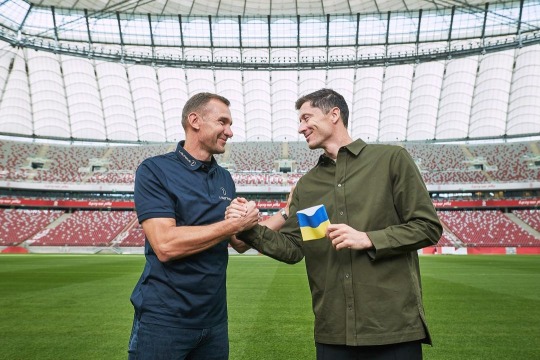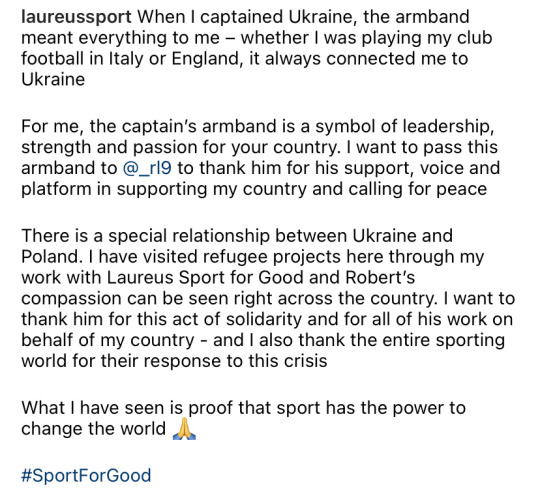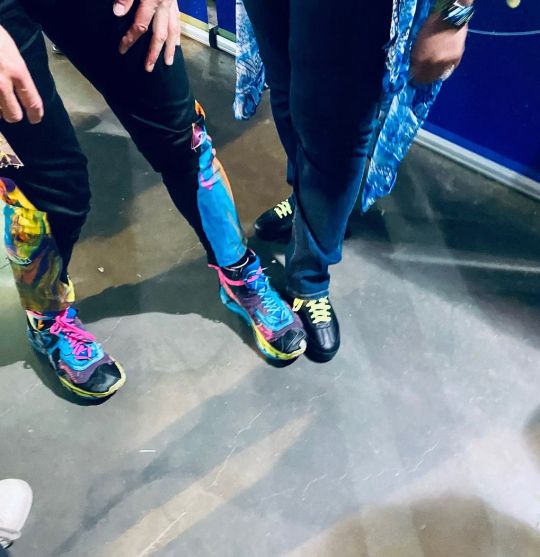#Global Champion
Text


" To save your loved ones... To make your dreams come true! "
Gamest Magazine n124 - August, 1994.
3 notes
·
View notes
Text
#365DaysOfVGM Day 18:
LOOK AT ME ! [Theme from Kazuya] (Kaiser Knuckle/Global Champion [1994])
One of the most heroic fighting game protagonist themes ever made, no doubt. Imagine hearing THIS marvel on its arcade cabinet
(Length before loop: 2.5+ minutes)
youtube
1 note
·
View note
Text


Nic Nemeth AKA Dolph Ziggler got let go by WWE and became the NJPW Global champion.
Mustafa Ali got let go of WWE and won the TNA X Division champion.
This just goes to show that WWE is holding back a lot of the talent.
Every superstar to either leave or be let go of WWE has become a champion in another promotion.
I've said it before and I'll say it again WWE is a sickness to itself.
#wwe#njpw global champion#njpw#tna impact#tna x division champion#wrestle talk#mustafa ali#nic nemeth#dolph ziggler
28 notes
·
View notes
Text
A Pkmn Irl League member discord server is now open!!!
For those of you that run canon gym leaders, fan-made champion, and whatever else your heart desires, there’s a discord server for you to RP to your hearts content on!
(league members and battle facility leaders only, though.)
#champion diantha#pkmn irl#pokeirl#pkmn rp#pokemon#poke rp#pokémon#pokemon diantha#pokerp#poke irl#rotomblr#rotumblr#pokeblr#pokeblog rp#pokeblogging#Official Pkmn IRL Global League Server
39 notes
·
View notes
Text
Not shocked at the US not being dominant, I feel like if you’ve been paying attention for the last two years it’s not a surprise, but I am shocked by how poorly they’re playing. I mean Jesus, the pass accuracy has to be scraping the bottom of the fucking barrel. And with all respect to the great game from debuting Portugal, it’s also inexplicable to me that Portugal took their foot off the gas for most of the second half even though it was absolutely their game to lose
Simply wild all the way around
#uswnt#wwc 2023#the us being a goalpost away from elimination in the group stage; imagine if both the reigning olympic champions and the#reigning world cup champions didn't make it out of groups#like i'm not even rooting for the us; and i'm super duper stoked for the growth of the game globally; but no one wants to see the juggernaut#teams just play badly??#anyway; this barrage brought to you by the fact that it's 5am so there's no one to watch with and be astonished alongside
28 notes
·
View notes
Text


LGCT Paris 2023
#roger yves bost#show jumping#show jumping gifs#lgct 2023#lgct paris#longines global champions tour#longines paris eiffel jumping 2023#sewellove gifs
21 notes
·
View notes
Text


andriy shevchenko gives robert lewandowski an armband in ukraine’s colors to be worn during the 2022 world cup
#andriy shevchenko#robert lewandowski#let’s not forget the things that matter most!#ukraine’s victims; qatar’s maltreatment of people; and all other pressing global issues#these are all going to be spotlighted during the world cup#and i really really hope that both the players and fans don’t get lost in the pomp and forget the causes they’re championing#*socmed#*media
58 notes
·
View notes
Text
jami would go so hard playing dodgeball
3 notes
·
View notes
Text
Believe it or not, the metaphorical pan is plenty large enough to fry various fish of multiple sizes at once.
#spitblaze says things#dont spread yourself too thin with the things you champion obviously#but like. you can worry about global warming AND trans rights at the same time lol
11 notes
·
View notes
Text
a video of selena gomez watching a messi and his team match nd someone just said "selena finding out football is way more exciting than american football or basketball" like i knoww lmaoo and shes not even watching good football except for messi
#i see why football is the global sport and everyone that tried to watch idk 5 minutes of a champions league match would also get it#football#lionel messi
3 notes
·
View notes
Note
if i made pokemon swsh i would have made leon transgender
Well if you think about it they never once said he wasn't...
#This is also my personal take on him. I see people say he transitioned before becing champion but he was like 10 I don't think he knew#I think he transitioned as a teenager and everyone just sort of forgot because no one cares about that in pokemon world#Like. They have 0 reason to have transphobia especially considering so many of their gods have no genders at all#When you live in a world of crazy ass creatures with superpowers and your entire global culture is centered on that#I think a lot of the intricacies of human identity become incredibly mundane on a structural level
5 notes
·
View notes
Photo






All the Coldplay concerts I’ve been to so far. :)
Mylo Xyloto/August 3, 2012 (iZOD Center)
A Head Full of Dreams (July 16-July 17, 2016)/Metlife Stadium
Global Citizen Festival 2021 (Central Park)
Music of the Spheres (June 4-June 5, 2022)/Metlife Stadium
#coldplay#coldplay tour#coldplay tours#mylo xyloto#izod center#a head full of dreams#AHFoD#global citizen#metlife stadium#central park#music of the spheres#mots#chris martin#jonny buckland#will champion#Guy Berryman#xyloband
6 notes
·
View notes
Text
Good news for women

On Sept. 30, 1993, at 3:56 a.m., a deadly earthquake shook Latur and Osmanabad, districts in the western Indian state of Maharashtra. It killed 10,000 people and demolished 52 villages.
While many nongovernmental organizations were involved in the immediate rescue and relief work, there was one group that worked a little differently. It focused on efforts that engaged with women from affected communities and aimed to ensure their long-term wellbeing. The Swayam Shikshan Prayog (SSP), established four years later, began its journey by going door-to-door after the earthquake, meeting thousands of women. The group trained the women to become farmers and entrepreneurs, enabling them to become financially independent and rise above the adversity and loss they'd encountered.
Today, Swayam Shikshan Prayog is one of four winners of the Local Adaptation Champions Awards, organized by the Global Center on Adaptation (GCA), that is being announced at the COP27 climate summit in Sharm El-Sheikh, Egypt.
The awards recognize community-led efforts to adapt to the negative impacts of climate change. Winners will receive €15,000 to help their further their work. In an interview with NPR, SSP Director Upmanyu Patil shares significant moments from his journey.
This interview has been edited for length and clarity.
You've helped around 300,000 rural women from across India adapt to climate change. How did your journey begin?
It began with our relief efforts during the Latur earthquake.

Prema Gopalan was the founder of SSP, but unfortunately we lost her last March. I've been working with Prema and the team since 1993. I took over operations after she passed away. In those early days, we worked largely with disasters — the Gujarat Earthquake [2001], the Tamil Nadu tsunami [2004], floods in Bihar [2007] and in Kerala [2018]. We're working more extensively in three Indian states now — Kerala, Bihar and Maharashtra.
What do you focus on during the aftermath of a climate disaster?
Our focus is on restoration of livelihoods, especially for women. While relief efforts are needed in the immediate aftermath, long-term rehabilitation is our goal. We support them financially, so they can revive any business ventures that were lost as a result of these disasters. In some cases, we provide training so they can gain more skills that will help them set up entrepreneurial ventures. We are actively engaged with communities 3 to 4 years after a disaster, and even post that we continue to work with communities, helping local women generate more income.
Why did you start working on climate-resilient agriculture initiatives?
There were many farmer suicides in Marathwada [in the western Indian state of Maharashtra] when we worked there in 2012-15. When we surveyed the area, we realized that farmers there were planting only a single cash crop like sugar cane or cotton [crops produced only for their commercial value]. This was a problem, because if there was a climate-related disaster and the crop failed, they could not sell it and neither would they have money to buy food. We realized that there were mounting losses in the process, and that was causing great distress [to farmers]. What they needed most was food security. Being an organization with a mission to empower women to take on decision-making roles in their families and communities, we knew that this could come only with economic empowerment, because a breadwinner is a decision-maker. So we began to speak with these families, suggesting that they allocate a piece of their land — say about one-fourth or a fifth — for women to cultivate food crops. We provided training in organic farming, helping them sow pulses, grains, vegetables, fruits.
Did farmers always cultivate a single cash crop in this area?
No, they didn't. If you go back 25 years ago, people sowed multiple crops, ensuring food for their families and communities. Things changed when farming became commercialized, driven by market forces instead of primary needs. India's green revolution of the 1960's, which ushered in pesticides and fertilizers for greater yields, did a lot of damage too. We're trying to get communities to go back to traditional practices. We are mining the knowledge of elderly people in these communities, checking with agricultural departments at local universities to see if these traditional practices are backed by science and if they can come back. For instance, practices such as sowing seeds from native plants around your own home, creating your own compost from agricultural waste, and creating bio-fertilizer by using leaves.
Was it hard to make that transition to food crops and convince families to give away that land?
Initially it was, but we tell them that it's for their own food security. They can do whatever they want with the rest of the land. We ask them to involve women in growing their food. We've faced challenges in two areas. Many don't believe that organic farming can give you the same yields as farming with the use of chemical fertilizers. And many men don't think women can farm efficiently, even though women do a lot of manual labor on farms. They don't believe that she can take charge of the sowing or be a decision-maker.
How did you go about changing mindsets?
It takes time, but we reason with them. We show them how organic farming costs far less, when compared to the high costs of chemical fertilizers. And with 2 to 3 years of training, we prove that women can build their capabilities and take lead in their agricultural sector, just as they have done in sanitation and health. Getting [communities] to believe in this is a challenge in the initial phase.
Once women grow food for their families, what's the next step?
Once they secure food for their families and they have excess, the next challenge is finding a place to sell their extra produce. We link them to markets, and try to secure better prices for them. It's a challenge too, because traditional marketing methods require packaging, certification [and] branding or you won't get premium prices. The women work hard to produce organic food crops, but because of this, they often can't sell at the prices that justify that effort. They are unhappy about that.
Is there anything you do to ensure that they get fair prices?
We have started women farmer producer companies [where women farmers are partners, a system with collective ownership and joint investment]. They are involved in cultivating grains and pulses, but also in selling dairy [and] poultry. These allied activities ensure their incomes.
How does climate change affect their daily lives and their farming?
There are a lot of weather-related changes that we're seeing in recent years. For instance, earlier, the rains would come in mid-June, and remain till mid-October. People do their sowing and harvesting at this time. By February, it's time to sow the summer crop. But now, the rains come only in mid-July, and these are torrential, heavy rains. Then they stop abruptly, and farmers lose their crops. Farming is their only source of income and it is threatened by climate change. It's very distressing and women are especially vulnerable. Climate change has an impact on everything — health, economic conditions, water sources and food security.
You encourage "clean energy initiatives" in local communities. What does that involve?
In 2005, British Petroleum wanted to understand the energy needs in rural markets. So we partnered with them in that research. We found that cooking energy is a primary need in rural households. Together, we created a product — a "clean" cooking stove run on biomass pellets.
In 2012, we got funding from USAID to help create 1,000 women entrepreneurs, setting them up financially to be able to sell these stoves and other clean energy products [like solar panels] and services to 200,000 families in their communities.
How do these stoves that run on biomass work?
It works with cow dung. Every family has 3 to 4 cattle. They collect the cow dung every day. They feed this into a "bio-digester" — it's a machine that
converts cow dung into cooking gas and slurry. The process takes 6 to 8 hours. We use the slurry as organic fertilizer. And the biogas is piped to power the stove. This is safer than burning cow dung directly, which is a practice in many rural homes. It's also safer than LPG–compressed liquified petroleum gas, which is usually piped in for cooking. Each farmer owns their own biomass machine.
How do you intend to use the prize money from the award?
We would like to expand our scope and see if we can get more women involved.
What are the biggest changes you've seen after all these years of working with rural communities?
One of the biggest changes is in the attitudes of men. Earlier, men didn't like it when we met with women exclusively and they were not involved. They were wary and suspicious. But now, they actually welcome us, because they've seen how our helping women helps their children in turn, and improves the families' quality of life. There's more appreciation now replacing the snarky comments that we got earlier! This is a major change we've seen over the last 30 years.
It just goes to show that by empowering women, we can empower everyone.
Kamala Thiagarajan is a freelance journalist based in Madurai, Southern India. She reports on global health, science, and development, and her work has been published in the New York Times, The British Medical Journal, BBC, The Guardian and other outlets. You can find her on twitter @kamal_t
#India#women and farming#Women and climate change#Swayam Shikshan Prayog#Local Adaptation Champions Awards#Global Center on Adaptation (GCA)#Prema Gopalan
3 notes
·
View notes
Photo



@Coldplay and @miaamormottley caught up over the weekend to discuss how @GlblCtzn's around the world are taking action now to defend the planet, combat climate change, and the systemic barriers that put the world's most vulnerable at risk ⭕️ @micksheldrick @Hughcevans
[x]
5 notes
·
View notes
Text





Longines Global Champions Tour 2023 — Round 8: Paris (1st Christian Alhmann & Mandato Van de Neerheide, 2nd Roger Yves Bost & Cassius Clay VDV Z and 3rd Pénélope Leprévost & Bingo del Tondou on the podium for the LGCT Grand Prix of Paris 1.60m)
#longines global champions tour#lgct#lgct 2023#lgct paris#longines paris eiffel jumping 2023#penelope leprevost#roger yves bost#christian alhmann#show jumping#sewellove gifs#show jumping gifs#horses#equestrian#equestrian gifs
6 notes
·
View notes
Text

Barcelona vs PSG 1-4 (4-6): Champions League
Barcelona vs PSG: Champions League Clash Recap
This page has concluded its coverage. Here are the highlights from the Champions League clash between Paris Saint-Germain and Barcelona on Tuesday, April 16:
Paris Saint-Germain emerged victorious with a 4-1 triumph over Barcelona in the second leg of their Champions League quarterfinal, securing a 6-4 aggregate win.
Kylian Mbappe, amidst rumors of an impending move to Real Madrid, showcased his brilliance with a brace, propelling PSG to the semifinals.
0 notes